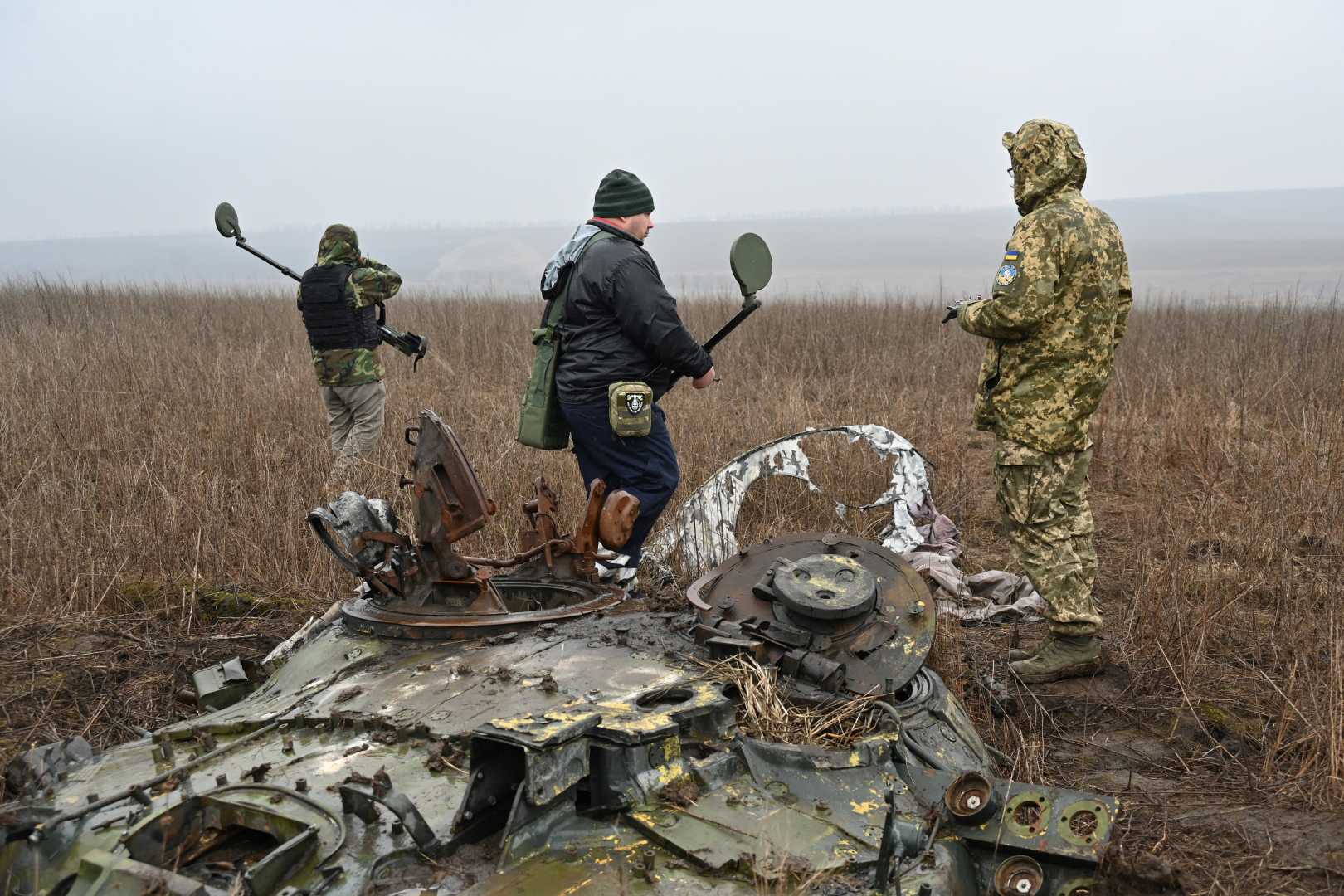World
Ukrainians Fear Concessions in Trump-Putin Peace Talks

KYIV, Ukraine — Ukrainians are expressing deep concerns over potential negotiations between U.S. President Donald Trump and Russian President Vladimir Putin that could lead to concessions detrimental to Ukraine’s territorial integrity. The fears are highlighted by the case of Iryna Danilovich, a human rights activist and nurse who disappeared in April 2022 and was later found to be in Russian custody, facing severe mistreatment and a seven-year prison sentence.
Danilovich was detained in Crimea, accused of illegal possession of explosives, and has since been sent to a harsh penal colony in southern Russia. Human rights monitoring group Zmina reports that her health has deteriorated significantly, suffering from constant headaches and not allowed to sit or lie down during the day.
As Ukraine insists its territories under Russian control are “temporarily occupied,” optimism about reclaiming these areas is waning. Trump suggested that regaining significant portions of occupied territories seems “unlikely,” following a 90-minute call with Putin, igniting panic as skepticism grows over Russia’s willingness to negotiate in good faith.
Yuliya Kazdobina, a foreign policy expert at Ukrainian Prism, voiced her doubts about Russia’s intentions. “We have endured many years of negotiations with Russia,” Kazdobina said. She reflected on the repeated violations from Russia over the years, including the 1994 agreement where Ukraine gave up its nuclear arsenal in exchange for security assurances.
In response to the Trump-Putin dialogue, Ukrainian President Volodymyr Zelensky made it clear that Ukraine would reject any peace agreement made without its involvement. “As a sovereign nation, we cannot endorse any agreements that do not include us,” he said, criticizing Trump’s discussion with Putin as “unpleasant.”
The Ukrainian populace resonates with Zelensky’s stance. Student Nazar Voloshenko commented that negotiations leading to concession of territory would be catastrophic for Ukraine. “We could end up forfeiting currently occupied areas, including parts of the Kherson region, Zaporizhzhia region and the beleaguered Crimea,” he said.
Currently, Russian forces occupy about 20% of Ukraine—an increase from only 7% before their full-scale invasion launched nearly three years ago. Estimates suggest that roughly 6 million people, including 1 million children, live under Russian occupation, which the United Nations describes as a “dire human rights situation.”
Crimea has been under Russian control since its illegal annexation in 2014, where Moscow has exercised a brutal regime against any opposition. Maksym Vishchyk, a lawyer from Global Rights Compliance, emphasized the systematic targeting of individuals and communities in occupied territories, perpetuating a cycle of oppression.
The UN Human Rights Monitoring Mission in Ukraine has repeatedly reported on human rights violations by Russia, including unlawful detentions, sexual abuse, and coercing individuals into accepting Russian citizenship. Despite mounting evidence, Russia continues to deny these allegations.
Financial consultant Oleksandr Sokhatskyi argued that any agreement altering Ukraine’s borders would be unacceptable due to the costs paid in human lives during the conflict. He asked, “Why did these Ukrainian troops sacrifice their lives and defend these territories?”
Frontline soldiers also expressed skepticism about the prospects of negotiations. Volodymyr Sablyn, a battalion commander, warned that conceding territory could set a dangerous precedent, enabling Russia to invade other countries with impunity. “It would signal to Russia that they can attack any nation, seize its land, and do so without consequences.”
Putin’s intentions for Ukraine remain transparent, as he aims for complete control over the eastern Donetsk and Luhansk regions. Multiple Ukrainian officials worry that even a ceasefire could lead to renewed hostilities. “No one will stop Putin from attacking us again,” Sablyn cautioned, emphasizing the potential for future conflict without continued international support.
Dariya Tarasova-Markina contributed to this report.












